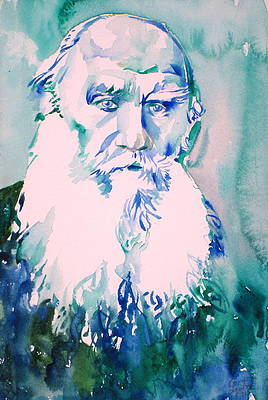Leo Tolstoy Archive
Written: 1888
Source: "Sevastopol," by Leo Tolstoy, translated by Isabel F. Hapgood, Published by Thomas Y. Crowell Co., 13 Astor Place
Transcription/Markup: Andy Carloff
Online Source: RevoltLib.com; 2021

On the following day, the band of the chasseurs was playing again on the boulevard, and again officers, cadets, soldiers, and young women were promenading in festive guise about the pavilion and through the low-hanging alleys of fragrant white acacias in bloom.
Kalugin, Prince Galtsin, and some colonel or other were walking arm-in-arm near the pavilion, and discussing the engagement of the day before. As always happens in such cases, the chief governing thread of the conversation was not the engagement itself, but the part which those who were narrating the story of the affair took in it.
Their faces and the sound of their voices had a serious, almost melancholy expression, as though the loss of the preceding day had touched and saddened them deeply; but, to tell the truth, as none of them had lost any one very near to him, this expression of sorrow was an official expression, which they merely felt it to be their duty to exhibit.
On the contrary, Kalugin and the colonel were ready to see an engagement of the same sort every day, provided that they might receive a gold sword or the rank of major-general—notwithstanding the fact that they were very fine fellows.
I like it when any warrior who destroys millions to gratify his ambition is called a monster. Only question any Lieutenant Petrushkoff, and Sub-Lieutenant Antonoff, and so on, on their word of honor, and every one of them is a petty Napoleon, a petty monster, and ready to bring on a battle on the instant, to murder a hundred men, merely for the sake of receiving an extra cross or an increase of a third in his pay.
“No, excuse me,” said the colonel; “it began first on the left flank. I was there myself.”
“Possibly,” answered Kalugin. “I was farther on the right; I went there twice. Once I was in search of the general, and the second time I went merely to inspect the lodgments. It was a hot place.”
“Yes, of course, Kalugin knows,” said Prince Galtsin to the colonel. “You know that V. told me to-day that you were a brave fellow....”
“But the losses, the losses were terrible,” said the colonel. “I lost four hundred men from my regiment. It's a wonder that I escaped from there alive.”
At this moment, the figure of Mikhaïloff, with his head bandaged, appeared at the other extremity of the boulevard, coming to meet these gentlemen.
“What, are you wounded, captain?” said Kalugin.
“Yes, slightly, with a stone,” replied Mikhaïloff.
“Has the flag been lowered yet?”[H] inquired Prince Galtsin, gazing over the staff-captain's cap, and addressing himself to no one in particular.
“Non, pas encore,” answered Mikhaïloff, who wished to show that he understood and spoke French.
“Is the truce still in force?” said Galtsin, addressing him courteously in Russian, and thereby intimating—so it seemed to the captain—It must be difficult for you to speak French, so why is it not better to talk in your own tongue simply?... And with this the adjutants left him. The staff-captain again felt lonely, as on the preceding evening, and, exchanging salutes with various gentlemen,—some he did not care, and others he did not dare, to join,—he seated himself near Kazarsky's monument, and lighted a cigarette.
Baron Pesth also had come to the boulevard. He had been telling how he had gone over to arrange the truce, and had conversed with the French officers, and he declared that one had said to him, “If daylight had held off another half-hour, these ambushes would have been retaken;” and that he had replied, “Sir, I refrain from saying no, in order not to give you the lie,” and how well he had said it, and so on.
But, in reality, although he had had a hand in the truce, he had not dared to say anything very particular there, although he had been very desirous of talking with the French (for it is awfully jolly to talk with Frenchmen). Yunker Baron Pesth had marched up and down the line for a long time, incessantly inquiring of the Frenchmen who were near him: “To what regiment do you belong?” They answered him; and that was the end of it.
When he walked too far along the line, the French sentry, not suspecting that this soldier understood French, cursed him. “He has come to spy out our works, the cursed ...” said he; and, in consequence, Yunker Baron Pesth, taking no further interest in the truce, went home, and thought out on the way thither those French phrases, which he had now repeated. Captain Zoboff was also on the boulevard, talking loudly, and Captain Obzhogoff, in a very disheveled condition, and an artillery captain, who courted no one, and was happy in the love of the yunkers, and all the faces which had been there on the day before, and all still actuated by the same motives. No one was missing except Praskukhin, Neferdoff, and some others, whom hardly any one remembered or thought of now, though their bodies were not yet washed, laid out, and interred in the earth.